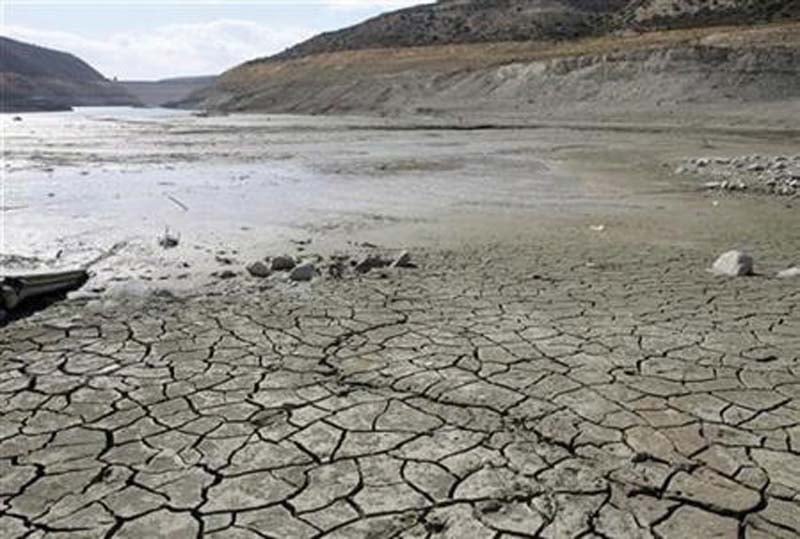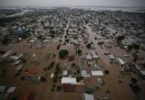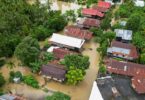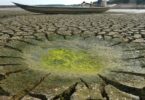Murad Khan
About Mohmand District:
Mohmand Tribal District مهمند یا مومند in Pashto and ضلع مہمند in Urdu is a district in Peshawar Division of Khyber Pakhtunkhwa province of Pakistan. It was created as an agency in 1951. Before 2018, it was an agency of FATA (Federally Administered Tribal Areas), with merger of FATA with Khyber Pakhtunkhwa, it became a district. Mohmand is bordered by Bajaur District to the north, Khyber District to the south, Malakand and Charsadda districts to the east and Peshawar district to the southeast. Population of the District as per Census- 2017 is 553933. The District Mohmand is divided into 2 subdivisions i-e Upper Subdivision (Which contains Tehsil Haleemzai, Safi, Khwaizi & Baizi) and Lower Subdivision (containing Tehsil Pindiali, Ambar, Prang Ghar & Ekkaghund).
According to a report of the United Nations, Pakistan is the 158th country in the ranking of countries for CO2 emissions, emitting less than 1 % carbon (around 0.18) per capita, but on the other hand Pakistan is amongst the list of those countries which are vulnerable to climate change, here the glaciers are melting on a very fast rate, creating golfs, increase in sea level, droughts and flooding, due to which human loss, infrastructure and Biodiversity of Pakistan is badly effecting. Like other parts of the country, Mohmand tribal district is also effecting badly from climate and environmental changes, if we study the 30 to 40 years old history, Mohmand Agency (before FATA merger in 2018) was very green, but due to global climate change, not only the beauty of this district changed, but a lot of Climate migration has been also recorded.
Mr. GharebUllah, a 70 plus years old retired teacher from Shabqadar Pirqala said that in before 40 to 50 years this area was very much green, I have seen the springs of water here, the springs water was so much clean and clear that the people used it for drinking purposes. Due to the presences of springs and more rainfall the people were cultivating crops and vegetables, that’s why the whole Mohmand Agency (Before FATA merger) was looking very beautiful, especially in the spring season.
M. Phil graduate Shah Khalid from Tehsil Safi District Mohmand says that A lot of indigenous plants have been disappeared and so many birds like Skylar,Chakur and other precious birds have been migrated from this district due to scarcity of water and severe droughts as a result of climate change effect. He added that as graduate in Environmental chemistry, I am aware of the fact that In Pandialai and Ambar areas of Mohmand Tribal District there are a lot number of chromite mines and the people are extracting them, so with flood water these chemical flows into the fields of vegetables and crops of wheat and which is ultimately used by human beings, ultimately causing different diseases and some of the people are of the view that due to the extraction of chromite, nephrite and other metals these skin, lungs and cancer diseases have been spread in the people of Mohmand District. He added that soil erosion, water scarcity Leishmaniasis, Malaria and so many other issues has been occurred due to climate change in Mohmand tribal district.
Oxford Climate Journalism Network fellow & environmental journalist Muhammad Daud khan says that Mohmand District is situated in Hindu Kush mountains bordering Pakistan and Afghanistan, where the quantity of rain has been decreased very much, due to which the water table of these areas has been effected very much. Due to lowering of water table and scarcity of water the yield of normal crops has been reduced to negligible amount, because the cultivation of staple crops and vegetable of majority areas of the Mohmand district depends upon the quantity of rain, so the crops are produced in only those areas of Mohmand district, where there is high water table, or those areas which have kanal water system (areas near Charsadda & Pranghar).
Mohammad Daud added that due to extreme weather events the Biodiversity and ecosystem, because the survival of birds and animals is very difficult in dry area like Mohmand, so majority of the indigenous birds has also been migrated from these areas and this migration of insects and birds put bad impacts on climate, as they take active part in pollination of plants, crops & vegetables. Mr. Daud Khan said that natural based solutions, rain water storage, making of small dams and plantation of eco-friendly plants are the possible solutions of the climate and environmental change issues.
The Caretaker Prime Minister Anwaarul HaqKakar said that climate change was a national security issue for a country like Pakistan. He reiterated that Pakistan was among the lowest carbon-producing countries in the world. Yet, it is among the top-most affected countries. While chairing an inter-ministerial review meeting in Islamabad regarding preparation of Agenda for COP28, the Caretaker Prime Minister said that climate change was a national security issue for a country like Pakistan. He reiterated that Pakistan was among the lowest carbon-producing countries in the world. Yet, it is among the top-most affected countries. Mr. Kakar said that Pakistan is playing a positive role in the global climate debate through climate diplomacy. He directed the relevant institutions to complete their groundwork for presentations on Pakistan in the context of climate finance and other related issues at COP-28.
Not only Mohmand District but majority of the other districts of Khyber Pakhtunkhwa, Sindh, Baluchistan and Gilgit Baltistan also have been badly affected from climate change, so It will be noted that how Pakistan will present its case in the UNFCCC annual meeting of COP 28(conference of Parties) in front of UN and international community.
The Writer is a Radio Producer and Freelance Environmental Journalist who tweets on @muradonline123







